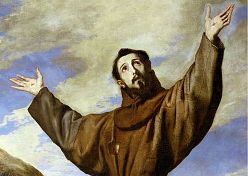In this essay, I will argue that the filioque
insertion should be retained, as it provides the most appropriate account,
grammar, of the Spirit’s origin. I shall do this by analysing the teaching of
Scripture, and from this contend that the work of Christ and the Spirit points
towards the origin of the Spirit in Christ. Moreover, it will be argued the
filioque secures the uniqueness of each divine person.
The filioque was introduced into Christian theology
by the Roman Church at the Third Council of Toledo (589), without the approval
of a recognised ecumenical council. As such, it has become a contentious issue,
between Western and Eastern churches. The clause concerns the inner-Trinitarian
relationship of the Holy Spirit to the Father and the Son, affirming that the
Paraclete proceeds not just from the Father, but also the Son. To critically
evaluate whether the filioque insertion was justified, I will employ the
following criteria: 1) Does the teaching of Scripture motivate an account of
the Trinity where the filioque provides the most appropriate grammar for
Christian language; 2) Does the filioque violate the uniqueness of the divine
persons as affirmed by Nicene Christianity? If the answer is ‘yes’ to (1) and
‘no’ to (2), then the filioque should be maintained as a guide to speaking
about God.[1]
In pursuing an analysis of the filioque, an
immediate problem arises in how to interpret the clause. The term ‘proceeds’ is
ambiguous in the relation to God, with a multiplicity of possible definitions
for ‘divine procession’ (Stylianopoulos, 1979, p.25). However, the term will
denote an ontological origination in this paper. That is, to say x proceeds
from y is to say that y is the source of x’s existence. Procession refers to
the source of the Spirit’s existence as a hypostasis who receives their
substance from an Other; it denotes the movement of logical priority within the
Godhead (Moltmann, 1980, p.183). On this reading, to say the Spirit proceeds
from both the Father and the Son is to contend that the Spirit’s existence is
grounded in the persons of the Father and the Son.
To begin this evaluation, it is helpful to uncover
why Nicene churches ascribe to the Spirit the property of proceeding from the
Father. This doctrine is driven by the recognition that the Spirit is sent by
the Father out of love, in order to empower Christ’s earthly ministry and the
inauguration of the Kingdom of God. Jesus was conceived by the Spirit (Lk
1:35), baptised in the Spirit (Mt 3:16), lived by the Spirit (Lk 10:21; 1Pe
3:18), his human nature was empowered by the Spirit as seen in his preaching
(Lk 4:18; Mt 12:18), miracle working (Ac 10:38), and his vindication (Ro 1:4).
Incarnated, Jesus was assisted in his human nature through the reception of the
Spirit in order to complete his instantiation of the Kingdom, with the Spirit
sent by the Father as an expression of the Father’s love for the obedient and
dutiful Son.
Furthermore, the Creed identifies that the Father
sends the Spirit to the community of faith after the exaltation of Christ, so
as to bring God’s people into the divine life. Christ tells the disciples that
they shall receive a ‘comforter’, who will be sent by the Father to dwell with
them on Earth forever (Jn 14:16). The Spirit will guide believers into all
truth, directing their lives so as to draw them into the communion of the
Trinity (Jn 16:13). The Spirit will indwell the Christian, sanctifying them in
the desire to do God’s will, predisposed to behave in ways which glorify and
enjoy the Lord (2Th 2:13; 1Pe 1:2) (Lewis, 1979, p.61). Thus, the Father is
understood to be sending the Spirit to transform the world through those who
are in Christ. If this is God’s self-revelation, it follows that the pattern of
the Father sending the Spirit to Christ and the Church reflects the inner life
of the Trinity. That is, the Father must breathe forth the Spirit within the
divine life, being the origin of the Paraclete’s existence. Thus, the
relationship of the Father to the Spirit in Scripture, suggests that the Spirit
proceeds from the Father.
It is my contention that we observe a similar
sending of the Spirit from the Son in Scripture. The love between the Father and Son is the
source of spiration (Augustine, 2012, 15.17.27–18.32). On the one hand, the
Father’s love for the Son is shown in the gift of the Spirit, to empower
Christ’s ministry. On the other,
Christ’s love for the Father is expressed in his self-offering through the
Spirit, which manifests itself in the revelation of the Father and the
redeeming of the world. All of his doings were intended to proclaim the glory
of the Father (Jn 14:9). As the High Priest, ‘He offers to the Father that
worship, that obedience, that life of love in unbroken intimate communion,
which we cannot offer’ (Torrance, 1996, p.37). Furthermore, Christ offers
himself as a sacrifice to fulfil the love of God for the world (Lk 22:42),
climaxing in his crucifixion (Lk 23:46). Jesus’ works reciprocate the love of
the Father; his intercessions to the Father for the world are made in the
Spirit. Indeed, if God is love (1 Jn 4:8), then one would expect the communion
of the Father and Son to be shared love, as expressed in the mutual sending of
the Spirit (Barth, 1936, p.557). Thus, as we identified the Spirit’s procession
from the Father with the Father’s expressed love for the Son, by implication we
should identify the Spirit’s origin also with the Son, as the Spirit enables
Christ to express his love for the Father.
Furthermore, the continuing activity of Christ in
the community of faith indicates that the Spirit proceeds from the Son. As has
been said, the Father sends the Spirit to God’s people in the aftermath of the
ascension to make them citizens of heaven. The question arises as to how this
process is enacted (Athanasius, 2012, ch.54). To be in the Spirit means one is
made a ‘partaker’ in the divine life, where one is assumed into a ‘sphere of
the direct and immediate activity of God’ (Torrance, 1975, p.234-5). This
indwelling is only possible because of the incarnation; when the Son took on a
human nature, ‘the self-sanctification of Christ through his own Spirit’
enabled humanity to receive the Spirit (Ibid.) That is, the ‘radical liberty
and creativity’ found in Jesus’ reconstruction of the human being and its
identity is witnessed by the Church in the activity of the Holy Spirit
(Williams, 2000, p.140). The Church’s experience of renewal by the indwelling
presence of God’s love (Eph 1), initiated by the incarnation and continued by
the Paraclete, leads to the conclusion that there is a mutual intimacy of the
Son and Spirit in the immanent Trinity (Gal 4:6). Moreover, the Son sends the
Spirit into the world to continue the instantiation of God’s Kingdom (Jn 1:33b;
Acts 2:33). Thus, the salvific work of Christ, as continued by the Spirit,
suggests that the most appropriate grammar for describing this event is by
inserting the filioque clause. Therefore, the Son’s love for the Father and
Jesus’ prolonged presence in the community of faith through the Spirit
motivates the use of the filioque when using language about God.
One objection to this clause is that it undermines
the uniqueness of the three persons, which is essential in Nicene Christianity.
In particular, it can be said to compromise the individuality of the Father. As
both Father and Son are affirmed to be the source of Paraclete’s procession by
the filioque, it follows on this interpretation that they are both the origin
of the Spirit’s divine existence. This indicates that there is a ‘double
procession’ within God: that from the Father, and that from the Son. Yet this
diminishes the distinguishing features of the Father. The individual properties
in terms of ontological origin determine the distinctness of each divine
person. The Father is understood to be ‘unbegotten’ or uncaused, the Son is
‘begotten’ or generated, and the Spirit ‘proceeds’. Thus, the Father is to be
understood as the unique source of the divine existence, as the origin of the
other two persons (Stylianopoulos, 1979, p.26). This is ‘his hypostatic
distinguishing quality’, that which makes Him different (Ritschl, 1979, p.12).
If we affirm that the Son is also the source of the Spirit’s being, then we
compromise the Father’s unique role as the sole cause of existence within the
Godhead. By making the Son an origin like the Father, the filioque degrades the
movement of direction within God of moving out from the Father towards the Son
(Fiddes, 2000, p.80). Hence, it is argued the filioque is inappropriate
theologically as it violates the uniqueness of the Father, a mark of Nicene
Christianity.
However, I will contend that the filioque actually
secures the uniqueness of the Father, Son and Spirit. Leibniz’s Law of the
Identity of Indiscernibles states that:
For any P, Q; if P has exactly all the same
properties as Q, then P is identical with Q. That is, P and Q are the same
substance. (Leibniz, 1969)
The allegation made against the filioque is it
makes the Father the same person as the Son, and thus violates the
distinctiveness of the persons as affirmed at Nicea. However, utilising
Leibniz’s Law one can refute this claim: the Father cannot be the Son because
He is unbegotten, and the Son cannot be the Father because He is begotten. That
means they do not share all the same properties, and so are unique persons.
Furthermore, the Spirit is not identical with the Father or the Son; whereas
the Spirit possesses the property of proceeding from the Father and the Son,
neither the Father nor the Son retains this property. Thus, each person’s
hypostatic distinguishing qualities are maintained, and thus the uniqueness of
the persons is secured by the filioque.
By contrast, the neglect of the filioque undermines
the distinction of the Son and Spirit. For if the Son is generated by the
Father, and the Spirit is generated from the Father, then there is no property
to distinguish the persons: they are the same hypostasis. Proponents of this
position often appeal to the ‘logical priority’ of the Son over the Spirit,
contending whereas the Son is begotten of the Father, the Spirit proceeds from
the Father (Nazianzus, 1994, 5.25). That is, the mode of generation is
different in that the Son is begotten and the Spirit proceeds. However, since
the generation of the Son and Spirit is prior to creation, there is no method
to distinguish begetting and procession. For if the generation of the Son and
Spirit is simultaneous, their origins are existentially identical, entailing
their ontological origination is the same. Nevertheless, if the Father and the
Son are the source of the Spirit’s existence, we can differentiate being
begotten from proceeding in relation to God; being begotten denotes generation
solely from the Father, whereas procession refers to the derivation from both
the Father and the Son. Given this, the Son is begotten, whereas the Spirit
must proceed. Therefore, the filioque ensures the uniqueness of the divine
persons, and as such does not violate individuality of the divine persons.
In conclusion, I have argued that the filioque
should be affirmed as the most appropriate grammar for speaking about the
Spirit’s origin. I contended that the teachings of Scripture motivate us to
employ the filioque due to the communion of Father and Son as expressed in the
sending and utilising of the Spirit in the life of Christ and the close
activity of the Son and Spirit in redemptive activity. The objection was raised
that the filioque may compromise the individuality of the Father, thus
violating a teaching of Nicene theology. Yet it was demonstrated that the
clause secures the distinct reality of the divine persons, in contrast to
opposing views. Therefore, because the filioque is motivated by Scripture and does
not compromise the distinctness of the persons, it follows it should be
regarded as the best conceptual framework for describing the source of the
Spirit.
Bibliography
Athanasius, On
the Incarnation, translated by Behr, J., New York: USA, St Vladimirs
Seminary Press, 2012
Augustine, On
the Trinity, editors. Boer, P. A. and Shedd, W., translated by Haddan, A.
W., Veratitis Splendor Publications, 2012
Barth, Church
Dogmatics: 1/1, Edinburgh: UK, T. & T. Clark, 1936
Bolotov, V., The
Comforter, translated by Jakim, B., Michigan: USA, Eerdmans Publishing Co.,
2004
Fiddes, P., Participating
in God: A Pastoral Doctrine of the Trinity, London: UK, Darton, Longman and
Todd, 2000
Leibniz, G., Philosophical
Papers and Letters, edited and translated by Loemker, L., Dordrecht: D.
Reidel, 1969
Lewis, C. S., Mere
Christianity, Glasgow: UK, William Collins Son & Co Ltd., 1952
Moltmann, J., The
Trinity and the Kingdom of God, translated by Kohl, M., London: UK, SCM
Press, 1980
Nazianzus, G., ‘Fifth Theological Oration: On the
Holy Spirit’, in Nicene and post-Nicene
Fathers volume 2.7, edited by Schaff, P., translated by Browne, C. G., and
Swallow, J. E., Hendrickson Publishers, 1994
Rahner, K., The
Trinity, translated by Donceel, J., London: UK, Herder and Herder, 1970
Ratzinger, J., Jesus
of Nazareth, London: UK, Bloomsbury, 2007
Ritschl, D., ‘The History of the Filioque
Controversy’, in Conflicts about the
Spirit, edited by Kung, H. and Moltmann, J., New York: USA, Seabury Press,
1979
The English Standard Version Bible, New York: USA, Oxford University Press,
2009. Print.
Stylianopoulos, T., ‘The Orthodox Position’, in Conflicts about the Spirit, edited by
Kung, H. and Moltmann, J., New York: USA, Seabury Press, 1979
Torrance, J. B., Worship, Community and the Triune God of Grace, Carlisle: UK,
Paternoster, 1996
Torrance, T. F., Theology in Reconciliation, London: UK, Geoffrey Chapman
Publishers, 1975
Williams, R., On
Christian Theology, Oxford: UK, Blackwell Publishing, 2000




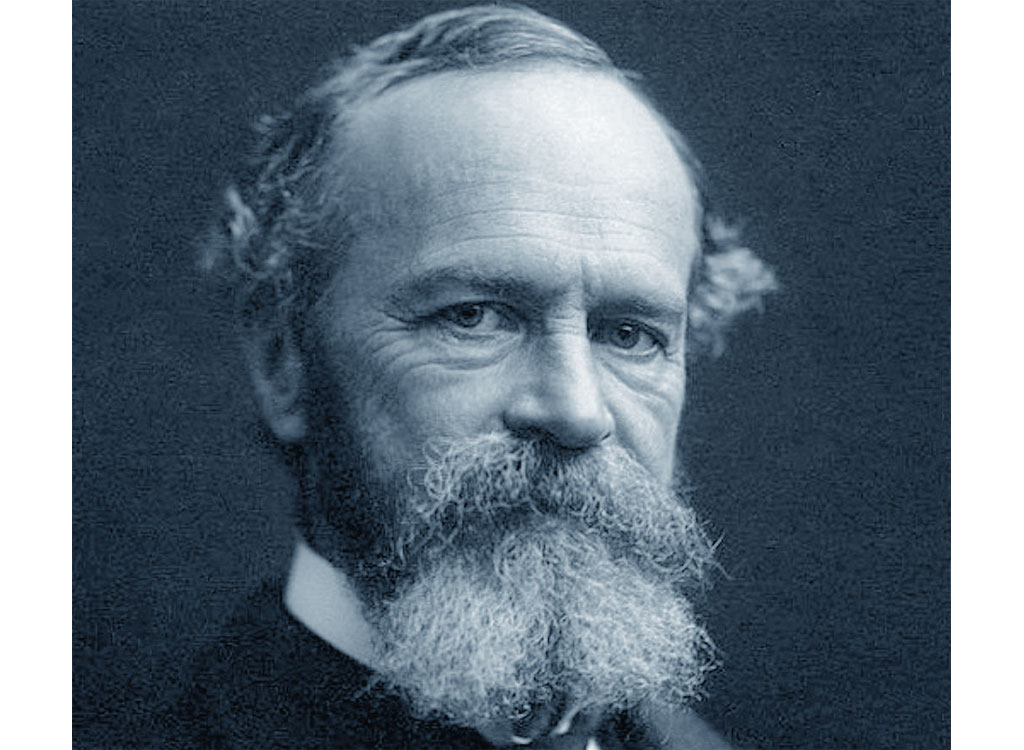
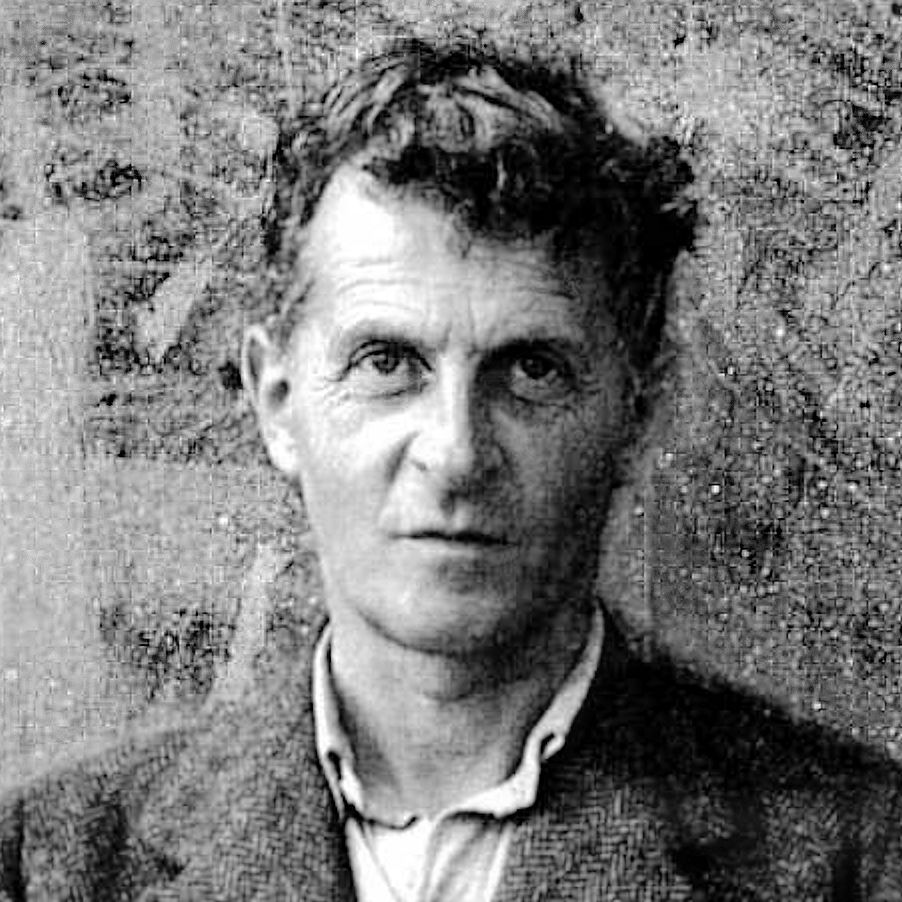


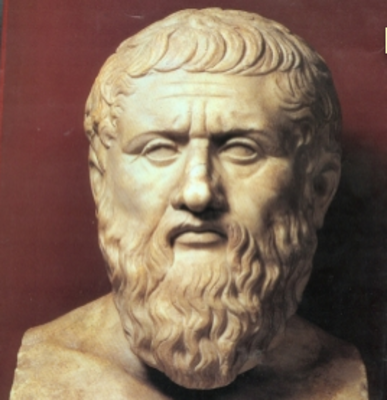


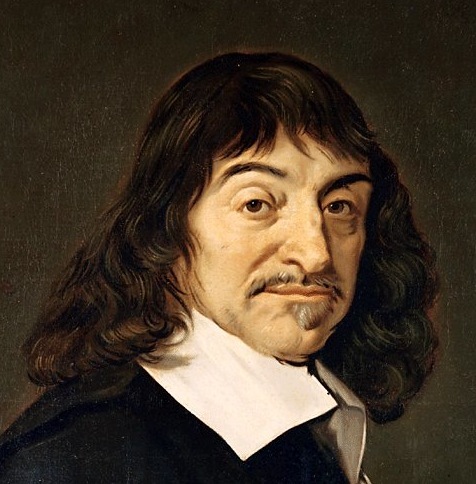
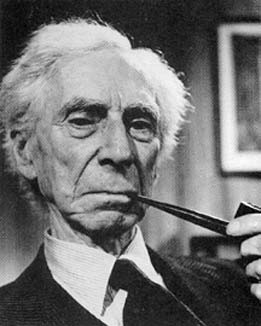




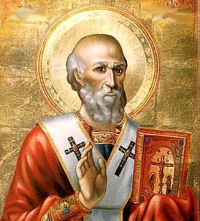
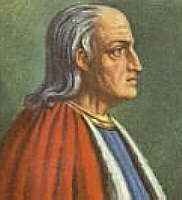





_-_Portr%C3%A4t_des_Martin_Luther_(Lutherhaus_Wittenberg).jpg)





